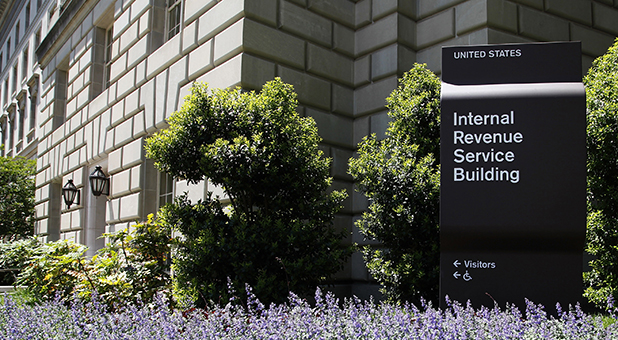Is the IRS Targeting a New Group?
The Internal Revenue Service’s targeting of Tea Party and conservative groups ahead of the 2012 General Election had broad political ramifications.
The added scrutiny, and the withholding of tax-exempt status for many of those groups had a distinct chilling effect on donations, effectively muting their voices ahead of the important election. It was an election in which President Obama won his second term in office, and Democrats were able to cling to a slim majority in the U.S. Senate.
Now, it seems, the IRS may have two new targets: churches and apolitical nonprofits.
In September the agency released a proposed regulation that would “voluntarily” ask churches and other nonprofits to seek Social Security numbers from donors. However, most Washington observers agree that “voluntary” policies are usually meant to get the foot in the door for permanent policies in the future.
As The Hill reported on Monday, Tim Delaney, president and CEO of the National Council of Nonprofits, said the new policy would have a “chilling effect” on donations, which can have devastating effects on those who depend upon them. He said, “That means a child will go without a meal, or a family will go without shelter, or a senior citizen will go without life-saving medical care.”
He also noted that hackers and scammers will likely attempt to exploit the rule to fleece unsuspecting donors. The rule received nearly 38,000 comments on the government website Regulations.gov, the majority of which were adamantly opposed to the proposal.
There is legislation filed in both the House and the Senate to prevent the rule from being implemented, but it has failed to gain traction in either chamber. And funding for the IRS that had been cut as a punitive measure following the IRS targeting scandal was just reinstated as part of the omnibus spending bill passed just before the Christmas break.
In 2009, the Government Accountability Office determined that reporting Social Security numbers—even voluntarily—for charitable cash contributions “may not be an effective way to improve compliance” for the IRS. It noted that churches and other charities could “incur substantial costs” to meet reporting burdens.















































